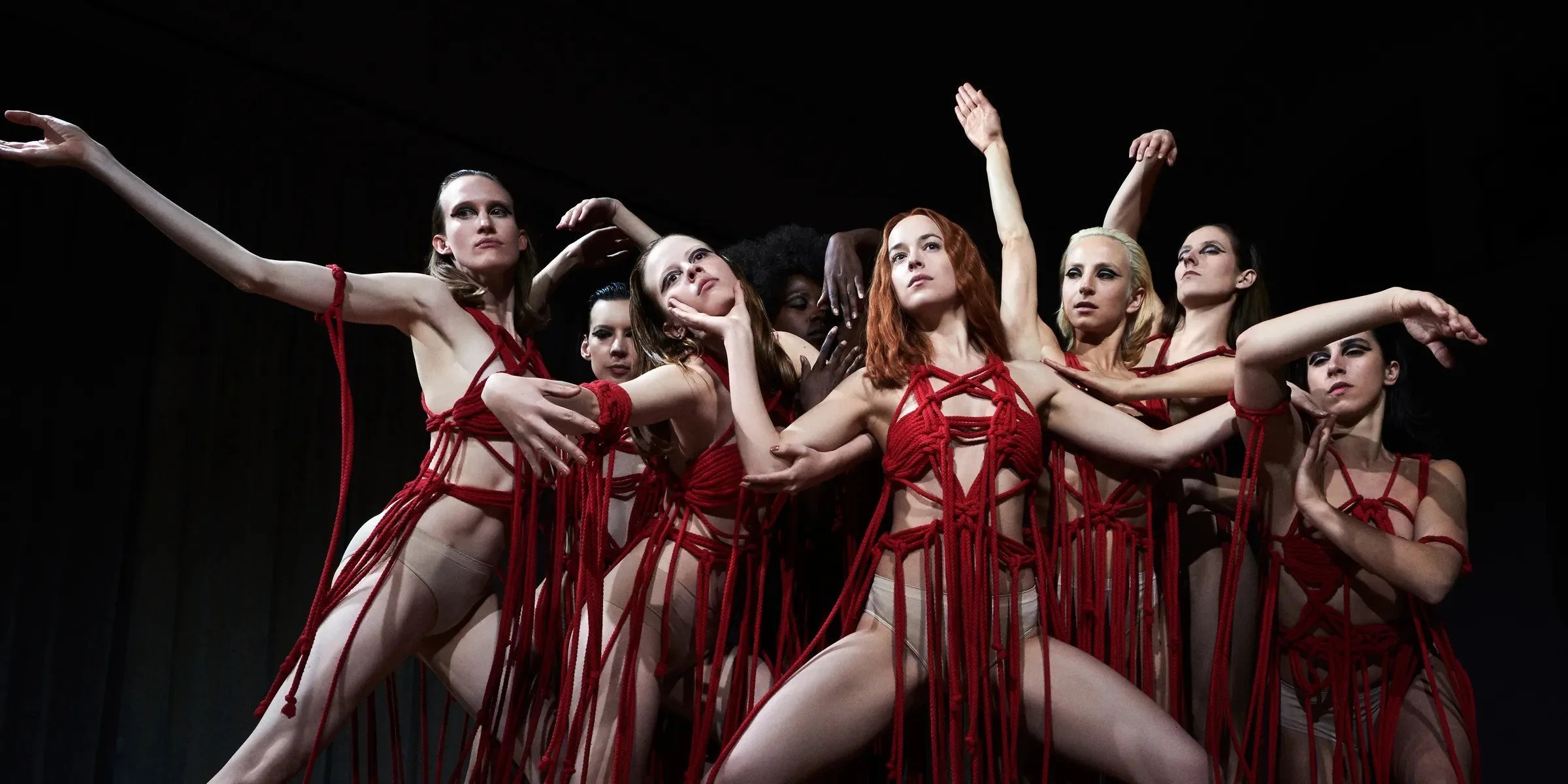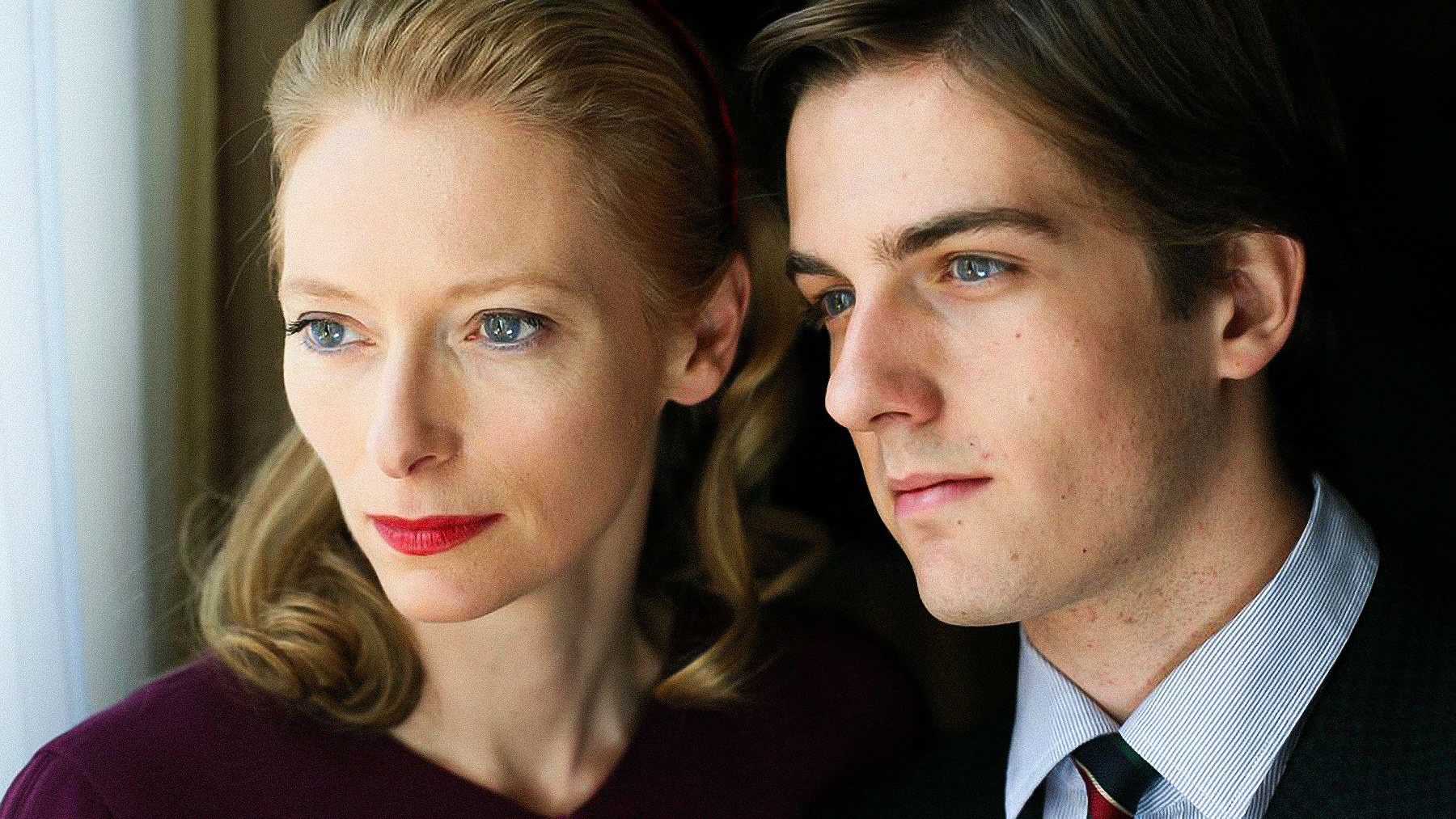EDITORS REVIEW ‘EVERYONE’S OBSCENE: FILMS OF LUCA GUADAGNINO’ COLLECTION ON MUBI
Luca Guadagnino’s body of work is nothing short of impressive. The Italian director made his debut in 1999 with the film ‘The Protagonists’, which was presented at the Venice Film Festival and marked the beginning of a years-long collaboration with actress Tilda Swinton.
While the list of mention-worthy films is long, there is one, which brought Luca Guadagnino among the best directors of today’s cinema. ‘Call Me By Your Name’ was a breakthrough not only for Luca but also actors Timothée Chalamet and Armie Hammer. With Luca’s continuous success, we want to celebrate not only his most famous work but delve deeper. His themes explore life’s complexities, pleasures and darkness of human experience, all packed in an intricate storytelling and visuals.
To promote the cinema of the mastermind behind many unforgettable films, we partnered with MUBI to present the collection named ‘EVERYONE’S OBSCENE: FILMS OF LUCA GUADAGNINO’. Our editors had the privilege to review a selection of Luca Guadagnino’s artwork, and now so can you with a 30-day free trial of MUBI!
STREAM THE COLLECTION EVERYONE’S OBSCENE: FILMS OF LUCA GUADAGNINO
‘THE PROTAGONISTS’ reviewed by ELIANA CASA, Social Media Editor
Before watching a new movie, I usually stop myself from looking up the trailer or the plot, because I want it to be a surprise. Gladly enough, I respected my small ritual this time around, and ‘The Protagonists’ proved to be a refreshing, suspenseful revelation. Something about Tilda Swinton’s glance on the 1999 poster immediately attracted me, and at the end it was clear to me why.
‘The Protagonists’ is a movie about the making of another movie. A film crew, whose director is Tilda Swinton (which feels confusing because her character is named after her), arrives in London to reconstruct the real-life killing of a complete stranger, named Mohammed Al Sayed, committed by two apparently ordinary teenagers. Their compulsive obsession with being part of the SAS (the UK’s most famous special forces unit) seems to be the apparent reason behind the murder. Might the desire to prove their (fragile) masculinity have been the provoking factor instead? Perhaps triggered by a hidden and rejected sexual tension between them? I still wonder. And that’s the beauty of Luca Guadagnino’s direction: the movie made me constantly wonder whether I was looking at an experimental faux documentary or an anxiety-provoking thriller; if I was actually in London, in the crew’s villa, helping them reconstruct the crime, or conducting the interviews with the victim’s family. Tilda's magnetic gaze fixed on the camera almost made me question myself at times, and at others, made me reflect on human beings’ vulnerability and weaknesses. Any of us could conduct the perfect crime, so what really stops us? I was part of the same room as her, captivated by her absurd eyebrows, which changed in colour and shape as the pathos of the story intensified. VHS montages interrupted the storyline, and seemed to retrace the characters’ memories, nostalgia, fears, and joys.
‘The Protagonists’ is an abstract and pleasantly disturbing crime-thriller, whose soundtracks and captivating visuals, (I still think about the stripping scene in the nightclub), mesmerise the viewer in an uncomfortable yet intimate way. Bravo, Luca!
‘A BIGGER SPLASH’ reviewed by MARIE-PAULINE CESARI, Digital Content Director
I first watched ‘A Bigger Splash’ ten years ago, and rewatching it now felt like seeing it for the first time. I noticed so many details I had missed back then, and the tension between the characters hit differently this time. It’s amazing how time can change the way you experience a film.
The movie is loosely inspired by the 1969 French film La Piscine and David Hockney’s iconic 1967 painting, ‘A Bigger Splash’, both evoking themes of voyeurism, intimacy, and tension. It follows rockstar Marianne Lane (Tilda Swinton), her boyfriend Paul (Matthias Schoenaerts), and the chaos that begins when her ex, Harry (Ralph Fiennes), suddenly arrives with his young, mysterious daughter Penelope (Dakota Johnson). Set on the stunning Italian island of Pantelleria, the film is full of jealousy, desire, and secrets that slowly come to the surface.
This time around, I really appreciated how the quiet, simple setting contrasts with the tension between the characters. Tilda Swinton’s quiet performance (her character has lost her voice and speaks very little) is incredible, while Ralph Fiennes is completely over-the-top, filling every scene with manic energy. The dynamic between them is so fascinating to watch.
It’s a rainy day in Amsterdam as I write this, and the film made me crave Italy; the heat, the colors, the endless blue skies. The way it captures the island’s atmosphere feels so real that you can almost feel the warmth on your skin. It’s the perfect movie to escape into, especially on a gray day like this.
‘SUSPIRIA’ reviewed by MAREK BARTEK, Online Features & Fashion Editor
I’m not gonna lie, I was scared to watch this movie. When I mentioned to my friend, who’s a huge cinephile, that I was going to review ‘Suspiria’, she instantly buried me in ‘interesting’ facts. From “did you know that Dakota Johnson almost quit a week before the filming because she thought it was too intense for her,” to “you really have to be in a right state of mind, otherwise it’s going to fuck you up.” As a part of my cautious preparation, I watched the trailer first, and then on Saturday at 23:30 I made an impulsive decision to just go for it.
Set in the post-war wall-divided Berlin, the opening scenes present us a session of a young girl Patricia with her psychiatrist Dr. Jozef Klemperer. She proceeds to blame women, who run the dance academy she’s attending, to be witches. We are then introduced to the protagonist of the film, Susie (Dakota Johnson), who comes from an Amish family in Ohio and arrives in Berlin amid Patricia’s disappearance. She is admitted to the academy and starts being tutored by none other than her role model and teacher Madame Blanc (Tilda Swinton).
While there are a lot of disturbing-looking scenes, they are created with such an artistic precision you can’t help but be mesmerised by them. From impaling one of the girls with hooks, to Sabbath ceremony with Mother Suspiriorum tearing her chest open in a Madonna-like image, while Thom Yorke’s music is playing in the background. It is the set design, the costumes, the acting of course, but especially the camera work. The abundance of still shots mixes with a very spontaneous, seemingly chaotic, movement of camera. It allows the viewer to better understand the mental state of the characters and truly draws you in to pay attention to exactly what Luca wants you to pay attention to.
With the exception of two male police officers, the cast is fully female (Tilda actually played three characters, among them the role of Dr. Jozef Klemperer). Above all, the movie explores the themes of motherhood, self exploration and abuse of power. We witness Susie’s relationship with her biological mother, the motherly relationship she develops with Madame Blanc, but also the awakening of her libido and sexuality, which ultimately makes her step into her shadow self. On the other hand, we can see how women running the academy manipulate the young girls—treating them motherly, while we watch the gruesome realities of horrible things some women can do to other women and themselves. It is important to note that the aim of the movie isn’t to portray powerful women as bad. Rather, it’s trying to show how anyone using the power to their own advantage, instead of serving others, is ultimately perverting it.
‘I AM LOVE’ reviewed by MARIA MOTA, Brand Director
As the movie begins, with scenes of snowy Milano, I look outside and see the usual grey, moody, dark Amsterdam weather, and I am ready to escape into another world of Luca Guardagnino. I Am Love, known as one of the director’s international breakthrough films, unfolds as a thunderous journey through love, identity, and the pressures of family legacy.
Emma, beautifully embodied by Tilda Swinton, is a woman trapped in a life that is not her own, but a cloistered existence defined by her relationship to her husband and his family’s dynamic. The film follows her transformation into rediscovering desire, passion, and sense of self, sparked by an affair with Antonio, cook, business partner and friend of her son. Their love is raw, authentic, intimate, pulsing with urgent intensity. Watching Emma savor her first taste of Antonio’s creations we witness a clear awakening within her.
As someone captivated by movie wardrobes and visual identities, I found one of the most striking elements: how Emma’s appearance reflects her internal transformation. At first, a polished, controlled look, embodying the ideals of Milanese high society. The Birkins! Though this carefully constructed image is not her true self, I can’t stop thinking about those looks. The very brief but unforgettable scene in the Duomo with the purple outfit is forever imprinted in my mind. Yet, beneath this perfection, there’s a palpable unease and tension in her every move.
But as she allows herself to be who she truly is, her perfectly put-together hairstyles, structured clothing, and curated appearance begin to fade. Scene by scene, her hair shortens, her jewelry disappears, and her outfits grow softer and freer, reflecting her honest feelings and newfound sense of self. If there was any doubt about Emma's struggle to know her true self, before Antonio, it vanishes during a conversation between the two: “Emma is not my real name. Tancredi (Emma’s husband) gave it to me.” “What is your name?” “I don’t know it anymore.” The contrast of grandeur and intimacy in the film mirrors the very essence of the story itself: the opulence of Milanese high society, against the rawness and tenderness of rediscovered love.
Though positive change enters Emma’s life, Guadagnino reminds us that self-discovery is often a bittersweet journey. A tragic death serves as a powerful symbol, a reminder that not everyone will embrace newfound independence, and that liberation can be as painful as it is exhilarating.
The final moments, though heartbreaking, leave you with a sense of catharsis. While I Am Love may sometimes feel predictable, it’s impossible to look away. The film pulses with life, beauty, and the bittersweet ache of transformation.




